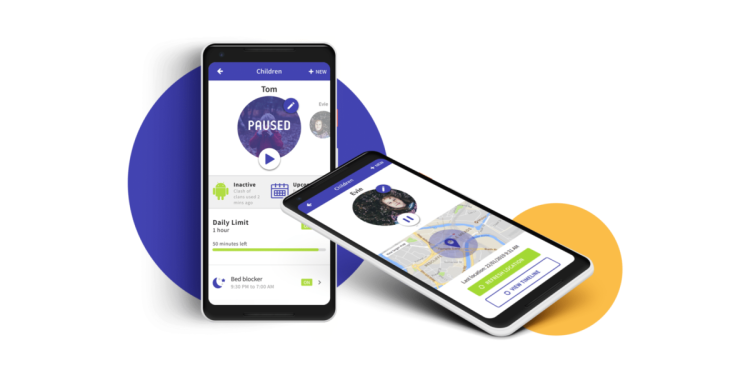It’s always a tricky task for parents to navigate the online world of their children. But of course, as parents, you want to ensure that they are responsible and safe at all times. You want to protect them. You want to ensure that they will only do what’s right.
What you do instead is read all books and articles you can find, and try keeping an open mind as you read both sides of the argument regarding parental controls. When the kids were younger, making rules, setting boundaries, and using monitoring apps were easier and simpler.
However, as they get old, things change to the point that they become defensive every time you check in on them and worse, their phones.
The last thing you want is to make them feel like you’re invading their privacy or creating a negative relationship. Again, it’s your job and duty as a parent, right?
To lessen the burden on your shoulders, here are several tips and tricks on how to strike the perfect balance between monitoring and privacy when using parental controls.
Cheer Them On
Instead of constantly scolding or criticizing your kids of their online activities and behavior, including social media use, try to be more understanding and supportive of them. Doing so will help your kid feel more comfortable talking to you about their online experiences.
You can try asking them some open-ended questions to encourage active listening and discussion to show how much you care about them and what they’re doing. You can ask them about the gains they get from these experiences and apps and how these add value to their lives.
Rather than questioning them outright, let them explain themselves. For all you know, they are watching science videos that can hone them to become inventors in the future, or they are talking to their friends who need emotional support. Remember, you will never know anything unless you ask.
Promote Critical Thinking
It’s also important to teach your kids how to critically assess and examine online content and identify propaganda, fake news, and other sorts of misleading information. Always encourage your children to fact-check every source they find.
Make sure they are skeptical of any sensationalist headline and to look for different sources of data. As a parent, you still need to question the stuff that your kids talk about every time they share with you the information they found online. Don’t let them believe and share things just because they saw it on TikTok.
Be a Good Example
Parents, you need to walk the talk. It means that if you want your kids to develop responsible digital behaviors, you should also develop yours. See to it that you always show your kids how to use modern technology in a healthy, balanced, and responsible way. Make sure that you also prioritize your face to face communication as well as your other experiences and activities offline.
Don’t let your phone and other gadgets become a distraction to you whenever you spend time with your kids. Encourage and promote outdoor activities and family time as often as you can. Now, all of these may sound too hard if not downright impossible. But with enough discipline on your part, there’s simply no excuse for you to not become a responsible and good role model for your kids.
Show Curiosity and Interest
Encourage your kids to share everything and anything they do online, the specific apps they’re using, and the type of content they’re consuming on a daily basis.
When you show curiosity and interest, you will be able to develop a non-judgmental and safe environment where your kids will feel more encouraged to discuss their online experiences.
Simple questions like “Why do you use the app?” or “How does this app work?” can go a long way. You will surely be surprised at how happy they will be to show and introduce you to their own world.
Discuss Online Safety
Yes, believe it or not, it’s imperative to talk about online safety with kids and teach them methods and strategies for protecting their data, avoiding strangers online, and reporting concerning behaviors.
Be sure to teach them about the risks and perils of oversharing and the essence of keeping their passwords as secure and safe as possible. Share some online safety resources appropriate to the specific age of your child and again, push them to ask questions. Inform them of the appropriate privacy settings and why they should them. Check-in with them as often as you can, too.
Use Child Monitoring Apps as Tools
Child monitoring apps are invaluable tools for parents to help them monitor online activities, set time limits on gadget use, and block unsuitable content of their children.
Rather than using these apps as a censorship method, you can use them to help your kids learn how to balance their offline and online activities. Work hand in hand with your children on setting reasonable time limits on gadget use and set clear rules for internet usage.
End Notes
At the end of the day, don’t forget to teach your children how to use technology and devices around them more responsibly. By striking a balance between monitoring and privacy in parental controls, you can help nurture a better and more positive relationship that is set to grow as they continue with their life’s journey.













